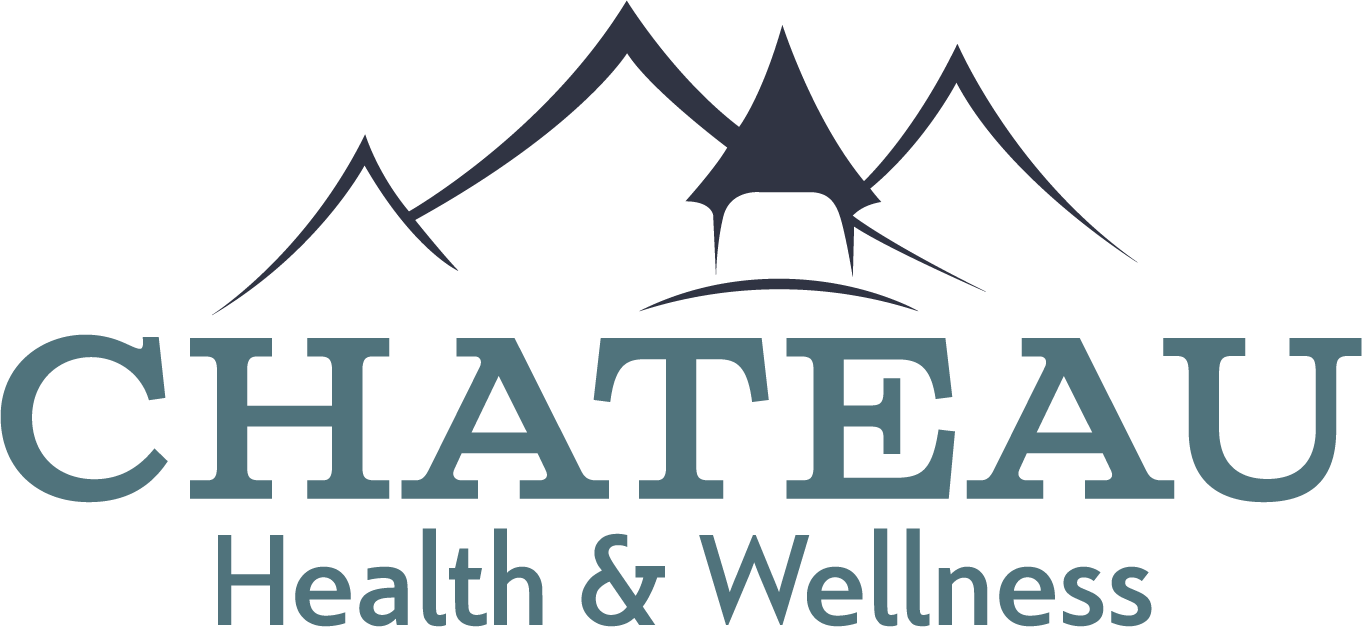

Promoting Resiliency


Our Mission & Approach to First Responders
Our mission is to empower and equip first responders who strive for hope, health, and a new mindset in recovery. We understand the unique challenges of your profession and work alongside you and your support network to break free from the stigmas of addiction. With the right help and resources, you can achieve life-changing sobriety and reclaim your well-being.
Chateau Health & Wellness looks beyond just identifying and adjusting behaviors -- we explore the core reasons impacting your mindset, trauma, and environment. We utilize comprehensive trauma informed therapies like the Arbinger Outward Mindset and Dharma Recovery.

Our Programs & Services

No One
Fights Alone Podcast
We have staff who come with first hand experience working in law enforcement, fire fighting, corrections, and emergency medical services. The No One Fight's Alone podcast is one way you can hear from these individuals who have a unique understand in what it takes to be a responder.

Who We Help

Police & Law Enforcement
We offer specialized treatment for those who protect and serve the public, combining clinical care with mental health training law enforcement professionals can trust. Our resiliency-focused curriculum helps officers manage chronic stress, improve relationships, and reduce trauma-related symptoms without compromising performance, confidentiality, or career standing.

EMTs and paramedics are often the first to respond when lives are on the line. At Chateau, we address the cumulative trauma, hypervigilance, burnout, and emotional strain that come from repeated exposure to medical crises, loss, and high-stakes decision-making. Our trauma-informed, confidential care helps EMS professionals restore sleep, resilience, and emotional balance while honoring their role as caregivers.

Firefighters carry the weight of repeated exposure to danger, loss, and high-stakes responsibility while remaining a steady presence for their crew and community. At Chateau, we provide confidential, trauma-informed care that helps firefighters process cumulative stress, restore balance, and strengthen resilience. Our approach honors the firehouse culture and supports long-term mental, emotional, and relational well-being.

Active Duty & Veterans
Military service shapes identity, resilience, and purpose, but repeated exposure to trauma and high-risk environments can leave lasting effects. At Chateau, we provide confidential, trauma-informed care for active-duty service members and veterans, addressing PTSD, depression, substance use, and moral injury while honoring strength, discipline, and the transition to life beyond service.

911 Dispatchers
911 dispatchers carry the emotional weight of emergencies as the steady voice guiding others through crisis. At Chateau, we address secondary trauma, chronic stress, burnout, and sleep disruption that come from repeated exposure to life-or-death situations without direct resolution. Our confidential, trauma-informed care honors the Thin Gold Line and supports long-term resilience, clarity, and emotional balance

Corrections Officers
Corrections officers operate in environments of constant vigilance, authority, and potential violence, carrying stress that rarely turns off. At Chateau, we address cumulative trauma, hypervigilance, burnout, and emotional hardening that develop from long-term exposure to high-risk institutional settings. Our confidential, trauma-informed care helps officers restore balance, sleep, and resilience without compromising safety, identity, or career.
First Responder
Program Overview

FOP Vetted & Approved Program
1 of 6 Vetted & Approved Facilities
-
Recognized by the National Fraternal Order of Police
-
As of February 2022, only 6 facilities are vetted and approved
Getting Help While on Duty
-
We help navigate department EAPs
-
We help you receive support while on active duty
-
We provide support at the residential level
Transition Support
-
Our support system continues beyond our facility
-
We help responders with their Self Leadership Plans
-
Provide ongoing Resiliency Training
-
Provide agency aftercare support

Trauma-Trained
Culturally Competent
We Treat the Whole Self
-
Comprehensive Assessments and Testing
-
Substance Abuse & Mental Health Education
-
Trauma & Development Focused Treatment
-
Reconnecting with Family & Values
-
Comprehensive Aftercare Planning
Mindset Training
-
Shift How We See Others
-
Shift How We See Ourselves
-
Change How We Approach Conflict
A New Relationship with Trauma
-
Processing Unresolved Events
-
Developing Trauma Response Skills
-
Expanding Stress Tolerance

Evidence Based Therapy Modalities
Chateau provides a range of trauma-specific modalities to help address and process your concerns including:
-
Eye Movement Desensitization & Reprogramming (EMDR)
-
Mindfulness Based Stress Reduction (MBSR)
-
Acceptance & Commitment Therapy (ACT)
-
Accelerated Resolution Therapy (ART)
-
Cognitive Behavioral Therapy (CBT)
-
Brainspotting & Neurofeedback
-
Motivational Interviewing (MI)
-
Individual & Group Therapy
-
RehabilitationNutritional
-
Family Systems Therapy

Aftercare Support & Transition
At Chateau, our ultimate goal is to help you overcome your addiction, avoid relapse and build a fulfilling life. Continued support is key to ongoing mental and physical health.
Family Education & Support
-
Provides Responder family and community support.
-
We believe that the off-duty environment plays a huge role in the overall wellness of First Responders.
12 Month Agency Responder Aftercare
-
First Responders who enter our residential program can count on ongoing support from our alumni resources.
-
First Responders can also count on continued communication with departments if needed.
Navigating Your Department's EAP
You cannot work during inpatient rehab; however, you can keep your job with either your department's existing Employee Assistant Program (EAP) or with the help of the Family Medical Leave Act (FMLA)
Free PDF Download: "Navigating Your EAP"
Learn how to start the conversation, ask the right questions, and what Chateau Health & Wellness can do to help.


Learning More About
First Responder Health

Common Issues:
You Are Not Alone
Over 80%
of first responders experience traumatic events on the job.
About 85%
of first responders have experienced symptoms related to mental health.
Up to 30%
of first responders are estimated to develop behavioral health conditions.
Only 49%
of first responders were offered "Psychological First Aid" after traumatic events.

Repeated Exposure to Trauma
First responders have a high exposure to trauma during their careers. Repetitive trauma results in physical and mental fatigue which can manifest as job stress, PTS, anxiety, depression, family problems, and addiction.

Putting Others First
“Essential workers are remaining strong and resilient for their patients, families, friends, and communities; however, the great personal risk they are taking to keep everybody else safe and healthy can have a toll on their own mental health.” -- Doreen Marshall, PHD

PTSD / PTS / PTSI Concerns
Trauma comes in all shapes and sizes. Research shows that it is a gateway to mental health issues, strained relationships, communication problems, and potential substance abuse. It's estimated that 30 percent of first responders develop behavioral health conditions as a result of trauma.

Alcohol & Substance Abuse
When emergency responders are faced with trauma and mental health issues, some turn to physical activity or counseling while others resort to alcoholic beverages because it's easy and accessible, especially when nearly half of first responders are not debriefed properly after traumatic events.

Retirement & Civilian Life Transition
Transitioning into civilian life after being a first responder can be difficult because there are not many jobs out there that offer the same level of challenge as emergency work does. This can leave first responders feeling lost and unfulfilled after retirement.

Addressing the Stigma: Talking About Mental Health
5x More Likely
First responders are 5x more likely to experience depression and PTSD.
7 out of 10
7 in 10 first responders say they rarely to never use mental health services.
57%
of first responders fear negative repercussions for seeking help.
40%
of first responders fear being demoted or fired for asking for mental health help.

Changing the Culture
As a first responder, you have an important role to play in helping others. Strength and bravery are highly valued traits — but it can also mean taking on "whatever the situation requires" without hesitation or fear for your own wellbeing.
Until recently, there has been a stigma around first responder's mental health conditions. Fortunately, this mentality, which perpetuates this misconception that these individuals are weak, is slowly disappearing.

Stigma By the Numbers
The stigma around mental health conditions is deeply engrained in our society and culture, but first responders have seen the positive effects that come from addressing it.
More than 7 out 8 police officers (and nearly 9 out 10 firefighters) say they'd be more likely to seek professional counseling if leadership within their organization speaks openly about experiences with depression or anxiety.

University of Phoenix Survey
First responders believe in the benefits of professional mental health treatment but are worried about repercussions; unfortunately this is what makes many first responders unwilling or hesitant about using the services.
The majority of first responders correctly believe that mental health treatment works for conditions like PTSD, depression and substance use disorders.























